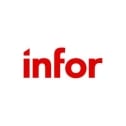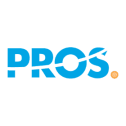CPQ Software for Manufacturing
The sales process for manufacturers can be complex, but having a clear system and the right tools makes all the difference. Typically, it looks like this: a sales representative begins by understanding the customer’s needs and explaining how the company’s products can meet them. Next, the rep creates a quote or proposal outlining the recommended products or services. Once the proposal is approved, the sales team works closely with the customer to finalize the order and ensure timely, on-budget delivery.
The secret to keeping this process smooth and ensuring customers get exactly what they need is Configure, Price, Quote software (CPQ). This indispensable sales tool streamlines every step, from product configuration to pricing and quoting, helping manufacturers close deals faster and with greater accuracy.
CPQ software is used in the manufacturing industry to help streamline the process of creating and pricing quotes for configurable products. CPQ ensures the entire quoting process is error-free and up-to-date. CPQ verifies all data points during configuration and automatically updates prices and product availability. This reduces the risk of misquotes due to outdated pricing information or incorrect configurations from sales team members. Additionally, CPQ’s built-in validation rules ensure accuracy by preventing users from entering invalid configurations that could lead to inaccurate quotes or orders for the wrong items.
The Challenges of Selling Complex Manufactured Products and How CPQ Helps
Selling complex, configurable products can be challenging, even for experienced sales teams. With intricate features, long product cycles, and multiple stakeholders involved in each deal, understanding the products and customer needs is critical. Sales teams must navigate industry nuances while maintaining strong customer relationships to close deals effectively.
CPQ software helps simplify this complexity. By automating the sales process from configuration to closing, CPQ reduces errors in pricing, quotes, and orders while streamlining resource management. It also enables sales representatives to suggest relevant upsells and cross-sells, improving the overall buying experience for customers.
Negotiations become easier with CPQ. The software provides accurate insights into product characteristics, pricing, delivery dates, and available discounts, helping sales teams present precise information to buyers. Centralized product data eliminates duplicates and inaccuracies, allowing personnel to quickly access the information needed during customer interactions or transactions.
CPQ also enhances the sales cycle with additional features like e-signatures, automated discount codes, and detailed reporting. Teams can track revenue by campaign, product, or customer segment, gaining insights that inform product development, growth strategies, and better customer engagement.
Here are some of the many business issues that CPQ helps manufacturers solve:
- long sales cycles
- incorrect product configurations
- configuration errors resulting in design changes
- miscommunication between Sales and Engineering
- inconsistent pricing
- errors in quotes and delays in quote approvals
- inaccurate inventory data
- revenue leaks due to incorrect quotes and billing
- the disconnect between the sales process and ERP solutions
CPQ Solutions for Manufacturing
Oracle CPQ Overview
Infor CPQ Overview
DealHub CPQ Overview
PROS CPQ Overview
Salesforce CPQ Overview
PandaDoc CPQ Overview
SAP CPQ Overview
Conga CPQ Overview
Manufacturing Sales CPQ Software Benefits
Manufacturing companies often use ERP systems to manage accounting, human resources, supply chain, and production, but ERP is less useful for managing the sales process. Manufacturers can reap many benefits from using CPQ to connect Sales and ERP. For example, integrating price lists, product configurations, discounts, and product availability from the ERP system into the CPQ enables sales reps to help customers configure the products they need. Integration between CPQ and ERP also ensures sales reps generate accurate quotes that reflect approved prices and product availability.
This automation of product configuration and quote generation dramatically reduces the sales cycle, increases sales team productivity, and improves the customer experience. The bottom line is that CPQ offers many advantages that help manufacturers stay competitive and grow revenue.
Now, let’s dive into the primary advantages manufacturing companies experience by implementing CPQ software.
Faster Sales Cycle: With CPQ software, customers can quickly and easily create quotes and orders, which speeds up the sales process. This can be especially helpful for larger manufacturing companies with a complex product lineup. CPQ software can also help ensure that orders are correct, which reduces the chances of errors and delays.
Streamlines Ordering Process: CPQ software can also help manufacturing companies streamline their ordering process. By automating the creation of orders and shipping documentation, CPQ can help ensure that orders are processed quickly and correctly. This can help reduce the time it takes to get products from the factory to the customer and ensure that customers are satisfied with their purchase.
Seamlessly Transfer Orders to Production: Many CPQ software platforms for Manufacturing, such as Infor and Experlogix, include visual product configuration capabilities in 2D or 3D. CAD drawings, bills of materials (BOMs), and similar documentation can all be generated automatically using the products’ configurations, ensuring a seamless transfer of orders between sales and production.
One Source of Truth: One crucial benefit of CPQ software for manufacturers is that it is integrated with the company’s ERP and CRM so sales reps access not only accurate customer information but also updated pricing and real-time product availability data. Additionally, having Engineering and Sales teams working together means that potential problems with the product are identified and addressed before they become more significant issues.
Improves Sales Performance: Through guided selling and the sales playbook feature of the tool, CPQ software can help manufacturers to identify potential new sales opportunities. By understanding how different configurations of products work together, sales reps can upsell or cross-sell compatible products to meet their customer’s needs and extend the value of their orders.
Better Data: CPQ software can also help sales managers track and analyze sales data to identify best practices and optimize sales strategies. In addition, tracking customer preferences and buying trends can help businesses better understand their target markets and develop new products or services.
Minimizes Errors: Manual quoting errors can add costly manufacturing delays. CPQ software helps to reduce product configuration and quoting errors by enabling sales reps to use a click-to-customize system to deliver accurate quotes, even for complex products.
Increases Profitability: CPQ software helps sales reps uncover upsell and cross-sell opportunities so they never miss a chance to provide customers with the best product and service mix at the best value. Rogue discounting becomes a thing of the past with automated approval workflows that ensure customers receive approved discounts. Additionally, CPQ software helps manufacturers quote products based on real-time inventory levels and updated product pricing. All of these benefits can help increase revenue and profitability.
CPQ for Manufacturing: What to Look For
Many CPQ platforms are built specifically for manufacturing companies. They include visual configuration engines that enable sellers and customers to build customized products or select from available products. Visual configurators simplify and integrate sales and production processes to deliver a superior customer experience.
Here’s what to look for when selecting a CPQ solution for your manufacturing company:
Visual Product Configurator: CPQ software is designed to help configure customized manufactured products within specified parameters while enabling rules-based guided visual selling. It provides an easy-to-use interface that makes it simple to configure complex products and generate accurate production documents for the manufacturing floor.
Pricing: Pricing and discounting can be complex, especially for custom-manufactured products. With CPQ, manufacturers can automate pricing based on real-time price lists and create multiple quote versions to send to customers to close deals faster.
Approval Workflows: A tightly-controlled rules engine and approval workflow ensure correct product configurations with correct prices are sent from sales to production.
Integration: CPQ software for manufacturing companies integrate seamlessly with other platforms, preventing errors caused by manual quoting and data synchronization issues. Most manufacturing CPQ software platforms integrate with CRM, ERP, SFA, and PLM systems.
Reports and Analytics: CPQ software enables sales and engineering teams to leverage all product, pricing, and sales data in one place. This unified data helps generate accurate business intelligence and reports that drive business decisions, inform sales strategies, and improve forecasting.
Frequently Asked Questions
CPQ software centralizes product data, automates configuration, pricing, and quoting, and provides sales teams with tools to standardize discounts, suggest upsells and cross-sells, and ensure valid product designs are sent to engineering and production. It also supports negotiations by delivering accurate insights on pricing, discounts, and delivery timelines.
Yes. Modern CPQ solutions integrate seamlessly with ERP, CRM, and other business systems, ensuring consistent product, pricing, and customer data across all platforms. This improves efficiency, reduces errors, and enhances collaboration between sales, engineering, and operations teams.
The best CPQ software depends on your company’s size, product complexity, and integration needs. Leading solutions for manufacturing include Experlogix, Camos, and Infor, each offering robust configuration, pricing, and quoting capabilities designed to handle complex products and streamline the sales process for multi-national companies.

Rhonda Bavaro excels in boosting SaaS companies’ growth through innovative content marketing, thriving in the dynamic sales tech industry amidst evolving technologies that drive revenue acceleration.








